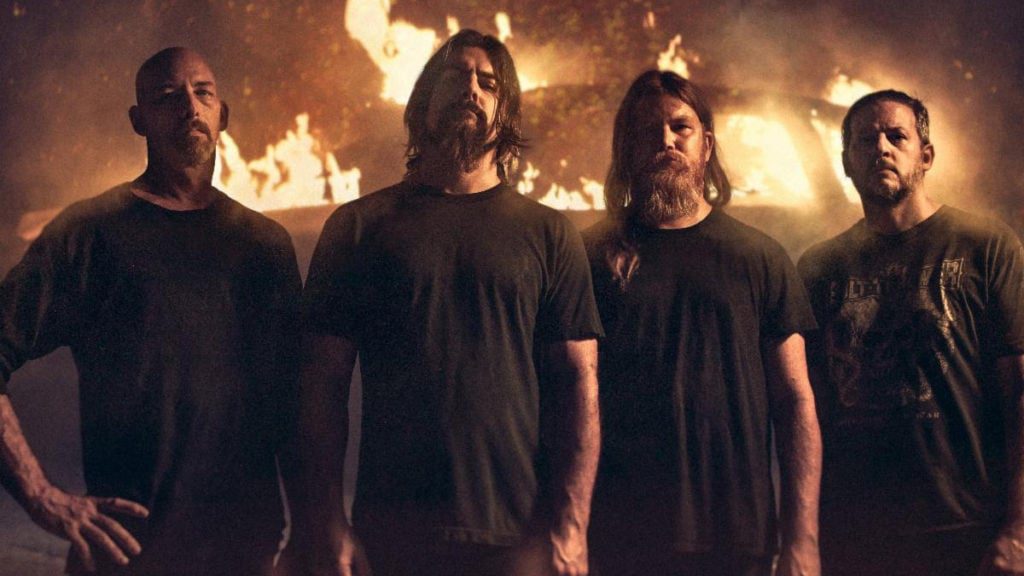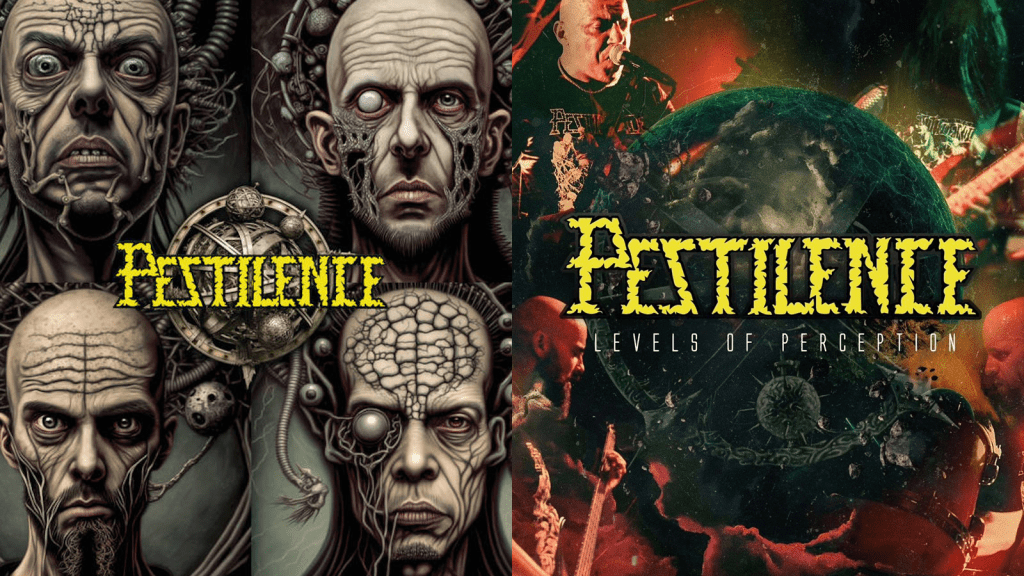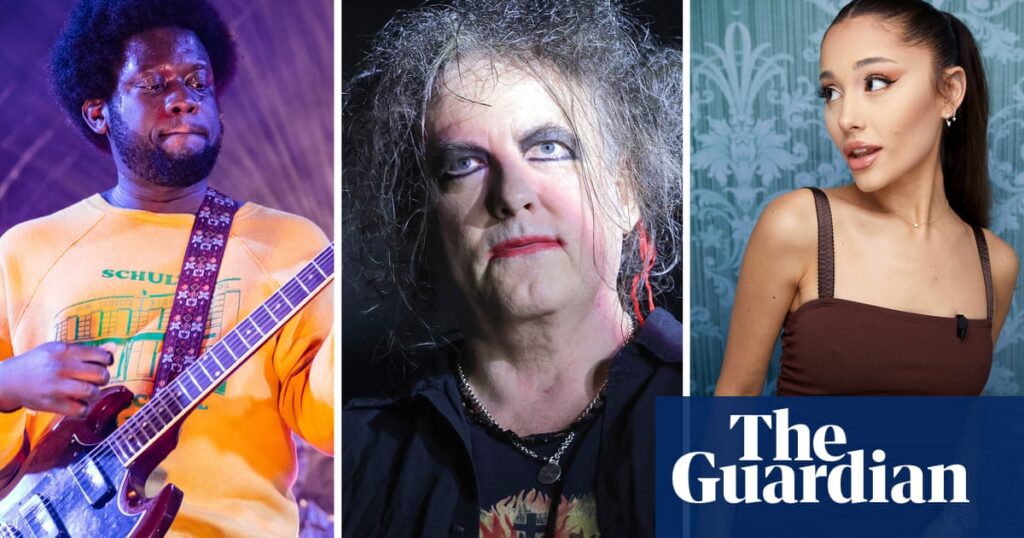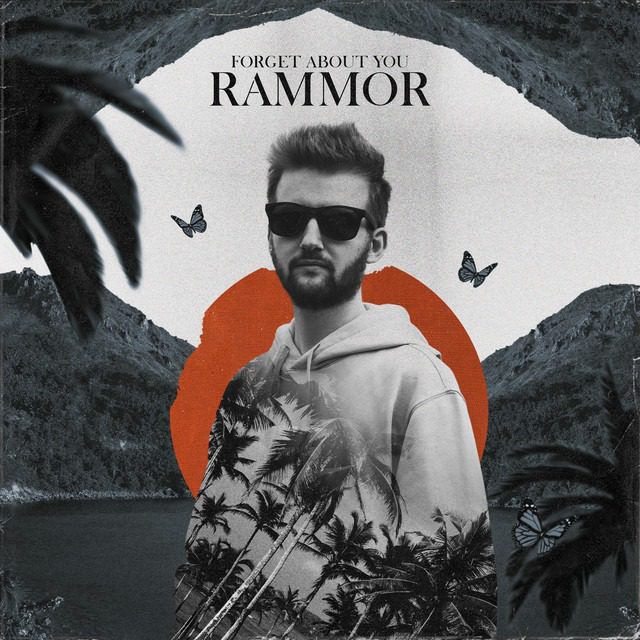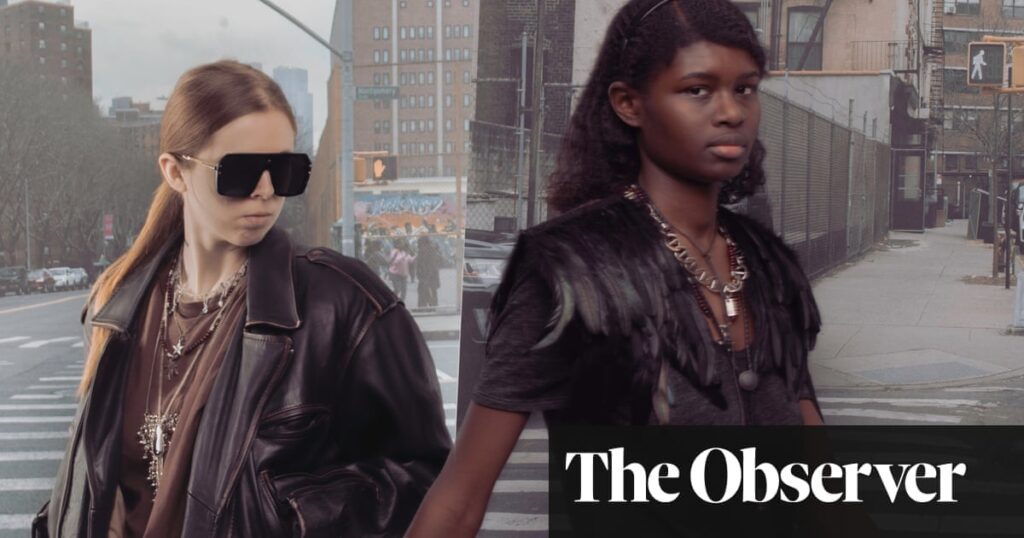
‘I‘d rather people scratch their heads than yawn’: St Vincent on death, Dave Grohl and dividing her fans
Midway through my interview with Annie Clark, AKA critically lauded, Grammy-winning, art-rock experimentalist St Vincent, a thumbs up emoji appears next to her head. We’re talking via Zoom, and Clark is mid-flow, waxing lyrical about her emotionally lacerating new album, the self-produced All Born Screaming. It doesn’t feel like the appropriate time for an emoji. Clark lets out a sigh, mumbling something about a setting on her computer she can’t change. She tests it again by doing an exaggerated double thumbs up, Macca-style, only for the screen to be filled with poorly animated fireworks. It all feels very surreal. “Maybe next time I say a solid quote, like a ‘Let’s make it the pullquote’ one, I’ll just put two thumbs up,” she laughs.
It’s not the first time Clark, 41, has attempted to subvert the interview experience, albeit accidentally this time. Around the release of 2017’s Masseduction, her “morbidly funny”, sad and sexy fifth album, she asked journalists to crawl into a freshly painted neon pink box to ask her questions. “I was sitting in paint fumes for 12 hours – as sadistic as it seemed, trust me it was way more masochistic,” she laughs, referring to that time as the “latex era” due to how strict she was being on herself. It was an attempt to continue both the severe nature of the album – a reaction to a painful dalliance with the tabloids following her high-profile relationship with model and actor Cara Delevingne in 2015; an aftershock that exploded her carefully curated mythos – and its postmodern playfulness.
“To do interviews and to do press is a construct,” she says in her glaringly white LA office (she splits her time between there and New York), looking like “goth Grey Gardens” in black silk headscarf, thick-framed sunglasses and a vintage Maison Margiela trenchcoat I initially mistake for a dressing gown. “Like I’m playing a role of this person and you’re playing a role of that person and wouldn’t it be interesting if we both acknowledge it was a construct and went from there. Maybe it would be more pure and more true if we did that,” she continues before adding with a delicious cackle: “But then I think people were like, ‘Oh she’s a cunt’.”
Being misunderstood is a symptom of Clark’s slipperiness, both musically and in person. After ditching the “asexual Pollyanna” feel of her first two albums, 2007’s Marry Me and 2009’s Actor, her output has combined kinetic high-wire art-rock – anchored by her incredible guitar playing – with funk, electropop, psych and, on 2021’s Daddy’s Home, 70s soul and glam. She’s worked with the likes of David Byrne (on 2012’s collaborative album, Love This Giant), Taylor Swift (co-writing her recent US No 1 single, Cruel Summer), noise merchants Swans, pop newcomer Olivia Rodrigo and rapper Kid Cudi. Even as a teenager, growing up in Dallas, Texas, Clark was able to move from high school bands doing Jewel covers, to channelling Sonic Youth in her college band, Skull Fuckers. Her most recent one-off singles, meanwhile, have included covers of Nine Inch Nails’ Piggy and Lipps Inc’s Funkytown, the latter taken from the soundtrack to Minions: The Rise of Gru.
Clark’s prowling, occasionally terrifying seventh album, All Born Screaming, which strips her sound down to the bone, is definitely more Nine Inch Nails than it is Minion-friendly. It’s full of decay and brutality, with its thrashing, raging opening half slowly softened by a glimmer of hope in its second. “I was dealing with a lot of loss and literal life and death,” she explains. “Death is very clarifying because you go, ‘This matters, this doesn’t’. To me, the first half of the record is base – whether it’s death or destruction or your own inner monologue of brutal self-loathing where you’re staring into the void, like, ‘Life is impossible’ – and then the second half is, ‘Well we get to fucking live it, so let’s grab it by the jugular.’”
Any attempts at digging deeper into the specifics of “literal life and death” are rebuffed. “I’m not trying to be withholding,” she says politely but firmly. “But we all deal with loss of people we love; we all deal with the shattering heartbreak of those losses, and so I don’t think it matters [who or what the songs are about] because the feeling is universal.”
Clark, always happy haunting pop’s periphery (she seems genuinely stunned at the global success of Cruel Summer, calling it a “sensation”), is not a fan of the current obsession with lyrical Easter eggs: “I don’t think songs are meant to be autobiographical puzzles for people to figure out. It’s for other people now, it’s not for me. I laboured over it, I love it, it’s my heart in there, and the sound of the record is the sound of my fucking brain, but who cares [about specifics].”
You sense a slight bruising after the exposing campaign for Daddy’s Home, an album detailing the fallout of her father’s imprisonment in 2010 for multimillion-dollar stock manipulation (he was released in 2019). Talking openly about its inspiration led to some terse encounters with journalists, with one interview being scrapped entirely at Clark’s behest after it was deemed “aggressive”. The album’s aesthetic – Clark in a cropped blond wig cosplaying as Warhol muse Candy Darling – overshadowed the music. Despite charting in the Top 20 in America and the Top 5 in the UK, Daddy’s Home felt like Clark’s first misstep.
The album was, she says, the symptom of the “crazy” time in which it was created, during the pandemic. While some artists went micro, revelling in the minutiae of life as everything shrunk, Clark went macro in her attempt to “transform myself into the kind of thing my father would love” via the album’s 70s obsession. It was an attempt at healing, and taking the power. “As far as it being misunderstood, I’d rather people scratch their heads than yawn,” she says with a shrug.
“It’s stark, it’s black and white, and the colours of fire,” she says of her new album’s aesthetic. She takes a sip of lemon water from a mason jar the size of her head. “This isn’t me being twee and polishing my handlebar moustache,” she says when I notice the oversized vessel. With a glint in her eye she finally offers up those all-important personal revelations: “A fun fact about me is I really love water. On a good day I go through five of these.”
While both Masseduction and Daddy’s Home featured input from omnipresent producer Jack Antonoff, All Born Screaming is the first St Vincent album Clark has solely produced herself. “There are some places you can only go alone,” she says. “So much of the record, and so much of finding it, was me being in the studio alone and turning knobs until I found lightning in a bottle.” She’s got “hours and hours and hours” of “industrial dance music, or weird jams” sitting on her hard drive. I suggest she could chuck it all out via some overpriced box set. “Yes, can’t wait to just milk the fans,” she says, an immaculate eyebrow peeping over her sunglasses.
after newsletter promotion

Working by herself also meant she could pore over her vocals, likening her obsession with getting it just right to that of director David Fincher’s notorious fondness for doing endless takes. “Like nope, sing it again and again and again until there’s no bullshit,” she says. The album’s opening two songs, the Tori Amos-esque mood piece Hell Is Near and Reckless, which has its early fragility swallowed by stormy electronics, took ages to perfect.
“[Reckless] had to be legit and correct and not sung but just felt. I sang it a hundred times and there’s no world where I would ever make anyone else sit in the studio with me while I did it. No way.” She did have studio companions, however. Dave Grohl – with whom she performed in 2014 when Nirvana were inducted into the Rock and Roll Hall of Fame – drums on ferocious lead single Broken Man and the twisted lust of Flea. “Ever since [that] first time we jammed, I hoped that someday it would happen again,” Grohl tells me over email. “She always takes you somewhere new, and does it with such power and grace. A total badass.”
Flea, I tell Clark, makes me think of flies feasting on a corpse. It’s gross, both lyrically and musically. Another raised eyebrow. “That’s you, and I’m so glad for your feelings and interpretation,” she says with a grin. “Gross is the right word. The anthems in my head growing up were ‘I’m a creep’, ‘I’m a loser’, and were in touch with a baseness that we all have.”
We talk about us both recently turning 40, mainly in the hope she has some words of wisdom for me. “I don’t know what you mean because I’m 27 … ” she laughs. “I don’t think about age so literally because as a musician you get to be a little bit Peter Pan. Your job, in the studio at least, is to play and dream, so I don’t feel in any way cynical or beaten down by experience. I’m psyched.” Her private life, that closely guarded secret, currently offers a solid foundation. “All we have is love and the people we love. That’s it. It’s the best thing and the only thing worth living for.” Is she in love? “Of course, yeah,” she smiles. “I have the greatest love of my life.”
A moment of beauty on the album is the pulsating Sweetest Fruit, which opens with an ode to the late electronic music producer Sophie, who fell to her death in 2021. For the first time Clark stumbles over her words, unsure if she should talk about the song’s specifics (“Let that be a fun Easter egg!” she jokes). “The internet twists things, and I don’t want it to be seen like I’m trying to capitalise on somebody’s death. I was an admirer from afar, we never met, but I read about the way that she fell because she was trying to get a better look at the moon, which was just the most beautiful, poetic thing I’ve ever heard.” The song is about “people trying for transcendence, and at least they were taking a big swing or trying for something beautiful”.
Clark’s desire to find beauty in brutal circumstances pulses through All Born Screaming’s veins. Violent Times, which resembles an elegantly sloshed lost Bond theme, hinges on a lyric that seems to sum up where Clark finds herself in 2024, desperately holding on to love with white knuckles: “All of the wasted nights fighting mortality / When in the ashes of Pompeii lovers discovered in an embrace for all eternity.” A couple preserved by calcified layers of ash following a volcanic eruption is an image tinged with darkness, I suggest, but Clark disagrees. “I just think of it as the most romantic thing in the world,” she smiles. I now imagine a big black heart emoji appearing behind her instead of the thumbs up. “Like this is it – it’s two people embracing.”
All Born Screaming is released on 26 April.
